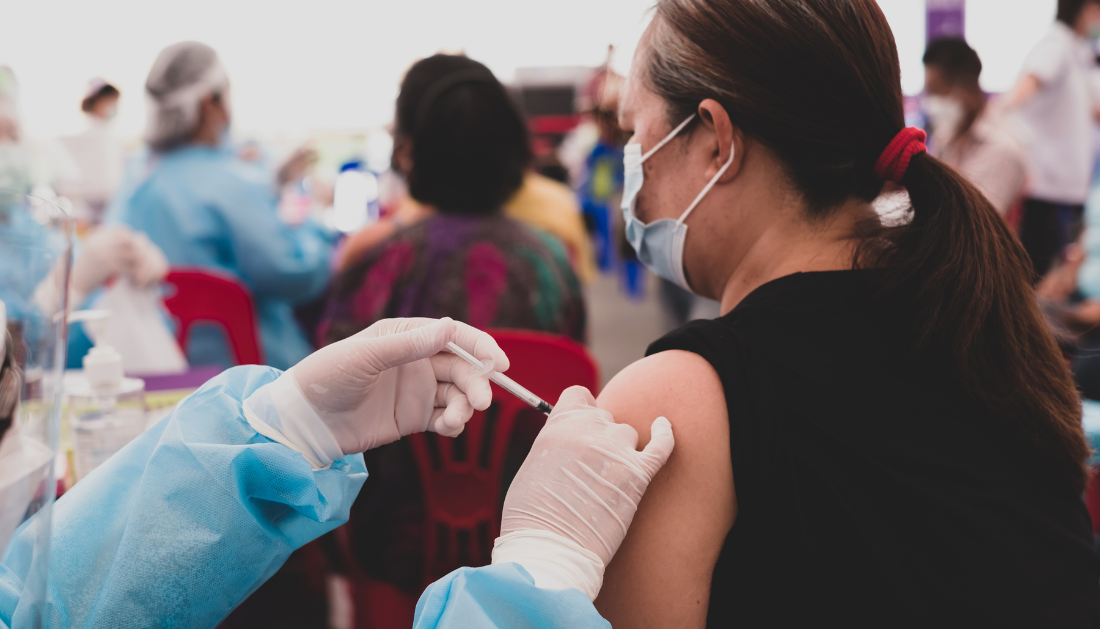

A medical student and a Georgetown global health law expert have identified three significant actions that global health leaders could take to help address the urgent need for fair access to diagnostics, treatments, and vaccine regulations during public health emergencies, as well as to reshape the global regulatory framework.
Sam Halabi, JD, a professor at Georgetown School of Health, and George O’Hara, a medical student at Georgetown and a David E. Rogers Student Fellow, write in their “Perspective” that was published today in the New England Journal of Medicine that these reforms are intended to strengthen the ability of national regulatory bodies, especially in low- and middle-income countries, to guarantee prompt and secure access to necessary medical products.
Currently, the approval procedure for medical items is dominated by the U.S. Food and Drug Administration (FDA) and a few other national regulatory authorities. As evidenced by the COVID-19 pandemic, this concentration of regulatory power in high-income nations has caused delays and bottlenecks in the delivery of essential medical supplies during emergencies.
Recent research shows that few national regulatory bodies—mainly in high-income nations—meet the strict requirements set forth by the World Health Organization (WHO) to be classified as “highly performing.” Roughly 75% of WHO member states do not have developed enough regulatory frameworks to guarantee the safety of medical supplies, including vaccines, to their citizens.
Halabi, who oversees the O’Neill Institute for National and Global Health Law’s Center for Transformational Health Law, and O’Hara suggest three crucial steps that the WHO and other global health authorities should take to remedy these shortcomings:
- Increase Regulatory Coordination and Planning: With national regulatory agencies that have reached advanced maturity levels, the WHO should aggressively participate in targeted planning. This involves including regulators from nations like as Singapore, Saudi Arabia, and Korea into a regional coordination project for emergency approval and assessment of dossiers.
- Leverage Multilateral and Regional Development Banks: Development banks ought to consent to provide loans for the purchase of medical products that have been certified by WHO-listed agencies and approved. By doing this, the access problems and bottlenecks caused by the COVID-19 pandemic’s reliance on the WHO’s Emergency Use Listing designation would be lessened.
- Encourage Regulatory Flexibility in Pandemic Agreements: When a worldwide pandemic agreement is being hammered out, it should include provisions that center on a coordinated, multilateral strategy for utilizing newly developed regulatory capability. LMICs can obtain vaccine doses earlier in future pandemic responses by decentralizing regulatory assessment and extending the approval process to authorities from nations with better regulatory systems.
Halabi and O’Hara add, “Together, these steps may promote more cohesive responses to future public health emergencies.”
By replacing the strict regulatory authority designation with a new framework of WHO-listed authorities, the WHO has already taken steps to lessen dependency on the FDA and the European Medicines Agency. The authors do, however, emphasize the necessity of further initiatives to guarantee stronger national control over the vaccine supply and lessen reliance on international organizations like COVAX.
“Expansion of regulatory pathways would prioritize public health by enabling diagnostics, therapeutics, and vaccine regulations to reach populations sooner,” they write. “By taking incremental but high-impact steps based on the WHO’s classifications of regulatory systems, global health leaders can mount a more equitable and rapid response.”
Source Link: Georgetown University Medical Center
more recommended stories
 T-bet and the Genetic Control of Memory B Cell Differentiation
T-bet and the Genetic Control of Memory B Cell DifferentiationIn a major advancement in immunology,.
 Ultra-Processed Foods May Harm Brain Health in Children
Ultra-Processed Foods May Harm Brain Health in ChildrenUltra-Processed Foods Linked to Cognitive and.
 Parkinson’s Disease Care Advances with Weekly Injectable
Parkinson’s Disease Care Advances with Weekly InjectableA new weekly injectable formulation of.
 Brain’s Biological Age Emerges as Key Health Risk Indicator
Brain’s Biological Age Emerges as Key Health Risk IndicatorClinical Significance of Brain Age in.
 Children’s Health in the United States is Declining!
Children’s Health in the United States is Declining!Summary: A comprehensive analysis of U.S..
 Autoimmune Disorders: ADA2 as a Therapeutic Target
Autoimmune Disorders: ADA2 as a Therapeutic TargetAdenosine deaminase 2 (ADA2) has emerged.
 Is Prediabetes Reversible through Exercise?
Is Prediabetes Reversible through Exercise?150 Minutes of Weekly Exercise May.
 New Blood Cancer Model Unveils Drug Resistance
New Blood Cancer Model Unveils Drug ResistanceNew Lab Model Reveals Gene Mutation.
 Healthy Habits Slash Diverticulitis Risk in Half: Clinical Insights
Healthy Habits Slash Diverticulitis Risk in Half: Clinical InsightsHealthy Habits Slash Diverticulitis Risk in.
 Caffeine and SIDS: A New Prevention Theory
Caffeine and SIDS: A New Prevention TheoryFor the first time in decades,.

Leave a Comment